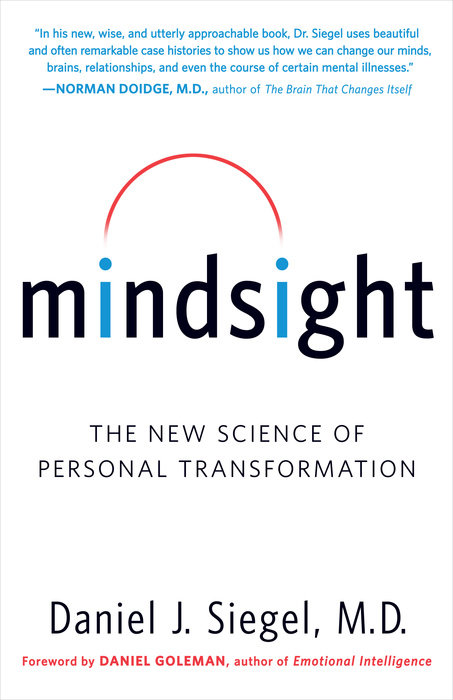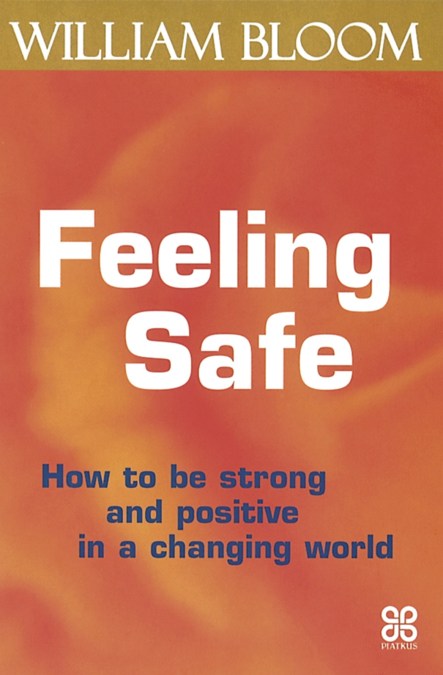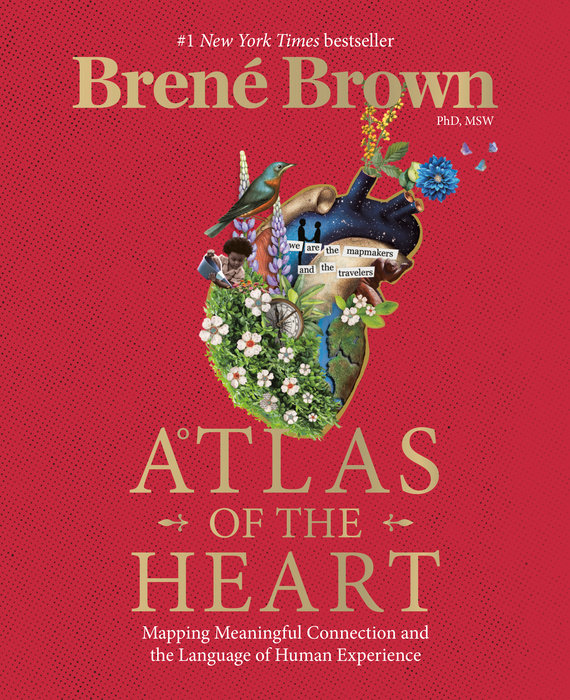Parent-child play, when it authentically appeals to the parent, can do grown-ups a lot of good.
YOU MIGHT ALSO LIKE
CLEAR ALL
BY TOPIC
BY TEACHER
BY TYPE
FILTER

TOPIC
- Grit (92)
- Personal Development (88)
- Talk Therapy (79)
- Creative Well-Being (76)
- Communication Skills (64)
- Romantic Relationships (63)
- Self-Development (63)
- Self-Discovery (63)
- Self-Mastery (61)
- Work Challenges (61)
- Well-Being (60)
- Stress (59)
- Honoring Emotion (58)
- Child’s Emotional Growth (52)
- Stress Management (48)
- Resilience (46)
- Work-Life Balance (46)
- Anxiety (45)
- Life Challenges (42)
- Neuroscience (42)
- BIPOC Well-Being (40)
- Mind-Body Connection (40)
- Relationship with Time (40)
- Mindfulness (38)
- Family Dynamics (36)
- Depression (35)
- Neurodiversity (35)
- Self-Care (34)
- Somatic Practices (34)
- Authenticity (32)
- Awareness (32)
- Children’s Well-Being (32)
- Self-Expression (32)
- Inspiration (31)
- Meditation (31)
- Self-Healing (31)
- Cancer (28)
- Trauma Healing (28)
- Child’s Challenging Behavior (27)
- Marriage (27)
- Self-Realization (27)
- Fear (26)
- Happiness (26)
- Setting Limits and Boundaries (26)
- Black Well-Being (25)
- Building Character (25)
- Emotional Intelligence (EQ) (25)
- Goal Setting (25)
- Presence (25)
- Habit Formation (24)
- Courage (23)
- Entrepreneurship (23)
- Identity (23)
- Play (23)
- Athlete Well-Being (22)
- Leadership (22)
- Motherhood (21)
- Motivation (21)
- Search for Purpose (21)
- Self-Acceptance (21)
- Self-Limiting Beliefs (21)
- Autism (20)
- Divorce and Breakup (20)
- Mindfulness Practices (20)
- Self-Actualization (20)
- Self-Compassion (20)
- Spiritual Growth (20)
- ADD/ADHD (19)
- Anger (19)
- Growth Mindset (19)
- Human Potential (19)
- Inner Peace (19)
- Self-Love (19)
- Transformation (19)
- Productivity (18)
- Self-Esteem (18)
- Work Relationships (18)
- Compassion (17)
- Confidence (17)
- Journaling (17)
- Negative Self-Talk (17)
- Racism (17)
- Self-Worth (17)
- Speaking Your Truth (17)
- Women’s Well-Being (17)
- Brain Health (16)
- Intimacy (16)
- PTSD (16)
- Self-Reckoning (16)
- Empowerment (15)
- Physical Health (15)
- Spiritual Awakening (15)
- Time Management (15)
- Child’s ADD/ADHD (14)
- Decision Making (14)
- Disabled Well-Being (14)
- Fellowship and Community (14)
- Finding Meaning (14)
- Forgiveness (14)
- Grief (14)
- Inner Life (14)
- Intention (14)
- Neuroplasticity (14)
- Self-Control (14)
- Work Ethic (14)
- Breathwork (13)
- Buddhism (13)
- Burnout (13)
- Child’s Trauma (13)
- Community Healing (13)
- Connection (13)
- Cross-Cultural Dynamics (13)
- Empathy (13)
- Joy (13)
- Peak Performance (13)
- Positive Psychology (13)
- Positive Thinking (13)
- Values (13)
- Vulnerability (13)
- Belonging (12)
- Caregiver Well-Being (12)
- Embodiment (12)
- Guilt (12)
- Habits of Mind (12)
- Shame (12)
- Spiritual Life (12)
- Activism/Service (11)
- Addiction (11)
- Adjusting to Parenthood (11)
- Challenges with Teens (11)
- Child Depression (11)
- Child’s Anxiety (11)
- Child’s Autism (11)
- Focus (11)
- Friendship (11)
- Gratitude (11)
- Inner Strengths (11)
- Letting Go (11)
- Love (11)
- Mental Health Challenges (11)
- Perception (11)
- Problem Solving (11)
- Psychology (11)
- Self-Reliance (11)
- Suicide (11)
- Toxic Relationships (11)
- Trauma (11)
- Aging (10)
- Attachment Theory (10)
- Consciousness (10)
- Cross-Cultural Parenting (10)
- Dysfunctional Childhood (10)
- Handling a Child’s Illness (10)
- Positive Self-Talk (10)
- Racial Healing (10)
- Acceptance (9)
- Anger Management (9)
- Child Defiance (9)
- Chronic Anxiety (9)
- Conflict Resolution (9)
- Connection with Nature (9)
- Criticism and Rejection (9)
- Exercise (9)
- Healing Approaches (9)
- Memoir (9)
- Social Anxiety (9)
- Adoption (8)
- Digital Life (8)
- Neuropsychology (8)
- Optimism (8)
- Raising Daughters (8)
- Relationship with Money (8)
- Social Justice (8)
- Somatic Experiencing (8)
- Tibetan Buddhism (8)
- Access to Education (7)
- Adaptability (7)
- Addiction Recovery (7)
- Collaboration (7)
- Diet and Nutrition (7)
- Energy Healing (7)
- Failure (7)
- Female Empowerment (7)
- Intergenerational Trauma (7)
- LGBTQIA Well-Being (7)
- Loneliness (7)
- Racial Identity (7)
- Racial Justice (7)
- Sex (7)
- Storytelling (7)
- Suffering (7)
- Trust (7)
- Veteran Well-Being (7)
- Withholding (7)
- Asking for Help (6)
- Awe (6)
- Blended Families (6)
- Child’s Social Media Addiction (6)
- Chronic Health Conditions (6)
- Cognitive Behavioral Therapy (6)
- Curiosity (6)
- Eating Disorders (6)
- Endurance (6)
- Fatherhood (6)
- Guided Meditation (6)
- Healthy Eating (6)
- Indigenous Well-Being (6)
- Integrative Medicine (6)
- Intuition (6)
- Kindness (6)
- Latinx Well-Being (6)
- Masculine/Feminine Dynamics (6)
- Offering Support to Others (6)
- Passion (6)
- Passive-Aggressive Behavior (6)
- Raising Sons (6)
- Retirement (6)
- Self-Discipline (6)
- Self-Pressure (6)
- Sleep (6)
- Slumps (6)
- Spiritual Healing (6)
- Art Therapy (5)
- Chronic Pain (5)
- Competition (5)
- Disconnection (5)
- Generosity (5)
- Highly Sensitive People (5)
- Interdependence (5)
- LGBTQIA Parents (5)
- Manifestation (5)
- Mindfulness Meditation (5)
- Racial Discrimination (5)
- Raising Nonbinary Children (5)
- Rest (5)
- Social Responsibility (5)
- Transitions (5)
- Willpower (5)
- Young Adult Well-Being (5)
- Accepting Love (4)
- Affirmations (4)
- Co-Parenting (4)
- Emotional Labor (4)
- Family Acceptance (4)
- Freedom (4)
- Gender Challenges (4)
- Hope (4)
- Inner Child (4)
- Integrity (4)
- Jungian Analysis (4)
- LGBTQIA Children (4)
- LGBTQIA Relationships (4)
- Lovingkindness (4)
- Men’s Well-Being (4)
- Midlife Crisis (4)
- Moral Philosophy (4)
- Movement Meditation (4)
- Narcissism (4)
- New Relationships (4)
- Nonbinary Well-Being (4)
- Oneness (4)
- Performance Anxiety (4)
- Philosophical Approaches (4)
- Poetry (4)
- Post-Traumatic Growth (4)
- Prayer (4)
- Psychology and Spirituality (4)
- Quitting Your Job (4)
- Race and Gender (4)
- Shadow (4)
- Social Media Addiction (4)
- Soul Mission (4)
- Spiritual Practices (4)
- Spirituality and Health (4)
- Stoicism (4)
- The Divine (4)
- Transgender Well-Being (4)
- Trauma-Informed Therapy (4)
- Visualization (4)
- Youth Activism (4)
- Zen Buddhism (4)
- AAPI Well-Being (3)
- Abandonment (3)
- Academic Struggles (3)
- Body Image (3)
- Body Positivity (3)
- Bullying (3)
- Clinical Depression (3)
- Cognition (3)
- Cognitive Psychology (3)
- Collective Trauma (3)
- Despair (3)
- Diamond Approach (3)
- Enlightenment (3)
- Enneagram (3)
- Facing Own Death (3)
- Faith (3)
- Financial Instability (3)
- Forest Bathing (3)
- Gender Discrimination (3)
- Generational Healing (3)
- Global Challenges (3)
- Holism (3)
- Humility (3)
- Hypnosis (3)
- Immigration and Assimilation (3)
- Jealousy/Envy (3)
- Kids and Sports (3)
- LGBTQIA Sexuality (3)
- Living with Illness (3)
- Love Languages (3)
- Military to Civilian Re-entry (3)
- Panic Attacks (3)
- Performance Pressure (3)
- Regret (3)
- Science and Spirituality (3)
- Self-Employment (3)
- Spiritual Development (3)
- Spiritual Direction (3)
- Subconscious (3)
- Unfulfilled Career (3)
- Yoga (3)
- Zen Meditation (3)
- Alcohol Addiction (2)
- Autoimmune Disease (2)
- Biofeedback (2)
- Bodywork (2)
- Building Culture (2)
- Cannabis/CBD (2)
- Child’s Alcohol Addiction (2)
- Climate Change (2)
- Codependency (2)
- Coming Out (2)
- Conscience (2)
- Conscious Evolution (2)
- Dark Night of the Soul (2)
- Death and Dying (2)
- Death or Loss of a Parent (2)
- Dharma (2)
- Doubt (2)
- Dreamwork (2)
- Drug Addiction (2)
- Environmental Exploitation (2)
- Environmental Justice (2)
- Feminism (2)
- Fiction (2)
- Gender Identity (2)
- Genetics (2)
- God (2)
- Handling a Loved One’s Illness (2)
- Imposter Syndrome (2)
- Learning Styles (2)
- Life Force Energy (2)
- Longevity (2)
- Memory (2)
- Neoshamanism (2)
- Nonviolence (2)
- OCD (2)
- Othering (2)
- Patience (2)
- Personality Disorders (2)
- Personality Typing (2)
- Poverty/Economic Inequality (2)
- Quantum Physics (2)
- Self-Harm (2)
- Sexuality (2)
- Situational Depression (2)
- Social Psychology (2)
- Spiritual Quest (2)
- Synesthesia (2)
- Weight Concerns (2)
- Whiteness (2)
- A Course in Miracles (1)
- Acupressure (1)
- Acupuncture (1)
- Anat Baniel Method (1)
- Anorexia (1)
- Astral Projection (1)
- Ayurveda (1)
- Buddha Nature (1)
- Chakras (1)
- Comparing Belief Traditions (1)
- Compassion Fatigue (1)
- Compassion Meditation (1)
- Compulsive Lying (1)
- Death or Loss of a Child (1)
- Death or Loss of a Loved One (1)
- Discrimination (1)
- Domestic Abuse (1)
- Economic Justice (1)
- Ecospirituality (1)
- Ego (1)
- Energy Balancing (1)
- Epigenetics (1)
- Existentialism (1)
- Faith and Identity (1)
- Family Therapy (1)
- Fate (1)
- Fatigue (1)
- Foster Parenting (1)
- Gender Justice (1)
- Goddess (1)
- Healing Touch (1)
- Heartmath (1)
- Higher Calling (1)
- Homophobia (1)
- Household Labor (1)
- Identity Shifts (1)
- Illness and Injury (1)
- Infidelity (1)
- Inflammation (1)
- Islam (1)
- Karma (1)
- Life-Altering Injury (1)
- Living as an Empath (1)
- Loss of an Animal Companion (1)
- Lovingkindness Meditation (1)
- Mentoring (1)
- Mysticism (1)
- Native American Beliefs (1)
- Nightmares (1)
- Non-Duality (1)
- Nutritional Medicine (1)
- Obsessions/Compulsions (1)
- Past Lives and Reincarnation (1)
- Physical Therapy (1)
- Postpartum Depression (1)
- Pregnancy and Childbirth (1)
- Psychedelic Journey (1)
- Psychoanalysis (1)
- Religious Experience (1)
- Ritual (1)
- Rolfing (1)
- Sexual Assault or Abuse (1)
- Sexual Health (1)
- Shamanism (1)
- Social Presence (1)
- Sound Healing (1)
- Spiritual Fasting (1)
- Spirituality and Politics (1)
- Sustainability (1)
- Sutras (1)
- Synchronicity (1)
- Taoism (1)
- The Feldenkrais Method (1)
- The Unconscious (1)
- Unconscious Bias (1)
- Vitamin Supplementation (1)
- Wake-Up Calls (1)
- Wholeness (1)
- Women’s Rights (1)
FILTER

TEACHER
- Gabor Maté (9)
- Edward Hallowell (8)
- Michele Borba (8)
- Daniel J. Siegel (7)
- Julia Cameron (7)
- Martin Luther King Jr. (7)
- Rick Hanson (7)
- Brendon Burchard (6)
- Daniel Goleman (6)
- Gary Chapman (6)
- Kelly McGonigal (6)
- Natalie Goldberg (6)
- Brené Brown (5)
- Byron Katie (5)
- Christine Caldwell (5)
- Debbie Ford (5)
- Don Hanlon Johnson (5)
- don Miguel Ruiz (5)
- Eckhart Tolle (5)
- Eric Maisel (5)
- Esther Perel (5)
- Julie Schwartz Gottman (5)
- Kenneth Robinson (5)
- Lisa Feldman Barrett (5)
- Peter A. Levine (5)
- Reginald Ray (5)
- The Dalai Lama (5)
- Andrew Solomon (4)
- Becky Kennedy (4)
- Daniel Amen (4)
- don Jose Ruiz (4)
- Elaine Aron (4)
- Elizabeth Gilbert (4)
- Elizabeth Lesser (4)
- Gordon Neufeld (4)
- Jack Canfield (4)
- John Gottman (4)
- Karla McLaren (4)
- Lodro Rinzler (4)
- SARK (4)
- Temple Grandin (4)
- A. H. Almaas (3)
- Arnold Mindell (3)
- David Whyte (3)
- Gary Zukav (3)
- Gay Hendricks (3)
- Harville Hendrix (3)
- Helen LaKelly Hunt (3)
- Joan Borysenko (3)
- John Bradshaw (3)
- Lori Gottlieb (3)
- Louise Hay (3)
- Martin Seligman (3)
- Mihály Csíkszentmihályi (3)
- Nancy Mellon (3)
- Noah Elkrief (3)
- Oprah Winfrey (3)
- Prince EA (3)
- Ramani Durvasula (3)
- Sadhguru (3)
- Sanjay Gupta (3)
- Scott Shute (3)
- Sonia Sanchez (3)
- Tara Brach (3)
- Terri Cole (3)
- Adam Grant (2)
- Alain de Botton (2)
- Albert Einstein (2)
- Alison Gopnik (2)
- Amishi Jha (2)
- Andrew Weil (2)
- Angela Duckworth (2)
- Anne Lamott (2)
- Blaise Aguirre (2)
- Bruce Lipton (2)
- Craig Hamilton (2)
- Danya Ruttenberg (2)
- Diane Ackerman (2)
- Dorothy Firman (2)
- Iyanla Vanzant (2)
- J. Krishnamurti (2)
- Jack Kornfield (2)
- James Hollis (2)
- Jay Shetty (2)
- John Sarno (2)
- Jon Kabat-Zinn (2)
- Karen Casey (2)
- Kathlyn Hendricks (2)
- Lewis Howes (2)
- Linda Graham (2)
- Lorin Roche (2)
- Marcus Aurelius (2)
- Marie Forleo (2)
- Matt Kahn (2)
- Maya Angelou (2)
- Mel Robbins (2)
- Michael A. Singer (2)
- Pema Chödrön (2)
- Ralph De La Rosa (2)
- Ram Dass (2)
- Resmaa Menakem (2)
- Risa Kaparo (2)
- Rob Brezsny (2)
- Robert Sapolsky (2)
- Scott Edelstein (2)
- Sharon Salzberg (2)
- Sharon Strand Ellison (2)
- Shauna Shapiro (2)
- Simon Sinek (2)
- Stephen Mitchell (2)
- Steven Johnson (2)
- Thich Nhat Hanh (2)
- Tony Gaskins Jr. (2)
- Tony Robbins (2)
- Wim Hof (2)
- Acharya Shunya (1)
- Alanis Morissette (1)
- Alison Green (1)
- Allison Briscoe-Smith (1)
- Alok Vaid-Menon (1)
- Anat Baniel (1)
- Anna Sale (1)
- Arianna Huffington (1)
- Ashley Neese (1)
- Audre Lorde (1)
- Barbara Emrys (1)
- Bernie S. Siegel (1)
- Bessel van der Kolk (1)
- Biet Simkin (1)
- Brian Tracy (1)
- Brian Weiss (1)
- Cal Newport (1)
- Chalene Johnson (1)
- Chan Khong (1)
- Charlotte Joko Beck (1)
- Chip Conley (1)
- Connie Zweig (1)
- Daniel Gilbert (1)
- Danielle LaPorte (1)
- David Perlmutter (1)
- Deepak Chopra (1)
- Dilip Jeste (1)
- Donna Eden (1)
- Dorothy Day (1)
- Elena Brower (1)
- Elizabeth Stanley (1)
- Ellen Langer (1)
- Evelyn Rysdyk (1)
- Forrest Hanson (1)
- Gangaji (1)
- Geneen Roth (1)
- Glennon Doyle (1)
- Guru Jagat (1)
- Howard Gardner (1)
- Howard Thurman (1)
- Hyla Cass (1)
- Ida Rolf (1)
- Iskra Lawrence (1)
- Jacqueline Carter (1)
- Jacqueline Novogratz (1)
- James Baraz (1)
- James Doty (1)
- James Hillman (1)
- James Oschman (1)
- Jan Willis (1)
- Jana Long (1)
- Jane Hirshfield (1)
- Jazmine McCoy (1)
- Jeff Foster (1)
- Jetsunma Tenzin Palmo (1)
- John C. Parkin (1)
- John Perry (1)
- John Welwood (1)
- Joseph Chilton Pearce (1)
- Joseph Goldstein (1)
- Joseph M. Marshall III (1)
- Judith Blackstone (1)
- Judith Orloff (1)
- Judson Brewer (1)
- Karen May (1)
- Kathy Freston (1)
- Kenneth Pelletier (1)
- Kim Eng (1)
- Krista Tippett (1)
- Kristin Neff (1)
- Lama Surya Das (1)
- Leah Guy (1)
- Lindo Bacon (1)
- Lisa Wimberger (1)
- Lise Van Susteren (1)
- Maria Popova (1)
- Maria Sirois (1)
- Marianne Williamson (1)
- Marie-Nathalie Beaudoin (1)
- Mark Hyman (1)
- Mark Nepo (1)
- Mark Victor Hansen (1)
- Mark Wolynn (1)
- Mary Oliver (1)
- Matthew Fox (1)
- Melanie Joy (1)
- Melissa Urban (1)
- Michael Bernard Beckwith (1)
- Michael Brown (1)
- Mitch Albom (1)
- Mooji (1)
- Moshé Feldenkrais (1)
- Neale Donald Walsch (1)
- Nicole LePera (1)
- Norman Fischer (1)
- Panache Desai (1)
- Paramahansa Yogananda (1)
- Parker J. Palmer (1)
- Philip Goldberg (1)
- Phillip Moffitt (1)
- Poppy Jamie (1)
- Rainer Maria Rilke (1)
- Rebecca Solnit (1)
- Rich Fernandez (1)
- Rich Roll (1)
- Robert Augustus Masters (1)
- Robert Firestone (1)
- Ruby Wax (1)
- Russ Hudson (1)
- Russell Brand (1)
- Sam Harris (1)
- Shaman Durek (1)
- Sheila Rubin (1)
- Stan Tatkin (1)
- Stephan Bodian (1)
- Stephanie Y. Evans (1)
- Stephen Covey (1)
- Steven Kotler (1)
- Sue Morter (1)
- Ted DesMaisons (1)
- Terence McKenna (1)
- Terry Real (1)
- Thomas Hübl (1)
- Thomas Moore (1)
- Thubten Chodron (1)
- Toni Morrison (1)
- Virginia Satir (1)
- Wayne Dyer (1)
- William Barber (1)
- William Bloom (1)
- Yongey Mingyur Rinpoche (1)
- Yung Pueblo (1)
- Zainab Salbi (1)










